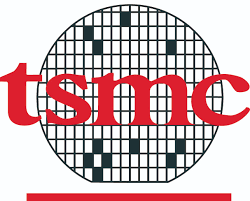 Two new developments emerged this week in the US-China technology rivalry that have bearing on the HPC futures of the two superpowers.
Two new developments emerged this week in the US-China technology rivalry that have bearing on the HPC futures of the two superpowers.
According to a Reuters story, Taiwan Semiconductor Manufacturing Co.’s (TSMC) CEO C.C. Wei, speaking at the company’s annual technology meeting, said construction has begun on a $12 billion chip fab in Arizona and that “the planned factory remains on track to start volume production of chips using the company’s 5-nanometer production technology starting in 2024.” Wei also noted that TSMC’s 3-nm process technology is still on schedule to begin volume production at a factory in Tainan, Taiwan, during the latter half of 2022, according to the Reuters article.
The new Arizona factory will be the first of up to six TSMC plans to build at the site over the next decade-and-a-half. The article stated that the company, along with Intel and Samsung, will compete for more than $50 billion in federal subsidies in a U.S. Senate bill advanced last week designed to, long term, expand American chip manufacturing resources and, shorter term, address the global chip shortage.
It also can be viewed within the increasingly tense US-China technology rivalry. Given that Taiwan’s nation-state status is a matter of contention – the PRC regards it not as an independent country but as Chinese territory. Taiwan, and therefore TSMC, under military threat is inherently destabilizing to a critical technology resource.
It also fits into the growing “indigenous technology” trend, in which geopolitical players strive to control development of technologies, chips in particular, at the core of their supercomputer development strategies (see “The US-China Supercomputing Race, Post-Exascale HPC Government Policy and the ‘Partitioning of the Internet’”).
The second development is President Joe Biden’s expansion of a ban yesterday on US investment in 59 Chinese companies with ties to PRC military and intelligence. The list includes Huawei Technologies and China’s three largest telecom firms.
The ban goes into effect on August 2.
The administration’s executive order builds on a policy begun by former President Trump. Many of the companies in Biden’s new order had also been named by Trump, such as China Mobile Communications Group Co., China Unicom Ltd. and China Telecommunications Corp.
Chinese military companies on Biden’s list are Aviation Industry Corp. of China, Ltd.; China North Industries Group Corp. Ltd.; China Aerospace Science and Industry Corporation Ltd.; and China Shipbuilding Industry Co. Ltd.
The ban is related to the U.S. Department of Commerce’s April announcement adding seven Chinese supercomputing organization to the export restricting Entity List for conducting activities “contrary to the national security or foreign policy interests of the United States,” according to Commerce.
The entities include: Tianjin Phytium Information Technology, Shanghai High-Performance Integrated Circuit Design Center, Sunway Microelectronics, the National Supercomputing Center Jinan, the National Supercomputing Center Shenzhen, the National Supercomputing Center Wuxi, and the National Supercomputing Center Zhengzhou.



